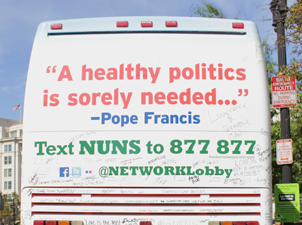
Getting Tax Reform Right for Our Nation
US Representative Mike Thompson (CA-05)
August 7, 2017
Economic inequality is a real problem that too many families face. Incomes have not kept up with the cost of living, and hardworking Americans are struggling to get by. So as Congress considers reforming our tax code, it must focus on leveling the playing field for the middle class and working families.
It’s been over thirty years since Congress made comprehensive changes to our tax code. A lot has happened in the interim—and our policies haven’t kept pace. We’ve seen the rich get significantly richer while the middle class keeps shrinking. Congress has the power and responsibility to change this trend. We can and should focus on reforms to create good, stable, high-paying jobs and help the men and women in our communities take advantage of the opportunities available to them now.
For instance, I’ve spoken with a number of my constituents who are trying to care for their kids, work a fulltime job, and go back to school so they can land a promotion or change careers. They are superheroes trying to do it all for their families, and they could benefit greatly if Congress expanded access to the American Opportunity Tax Credit, which helps millions of students and working families pay for college.
We should also look at policies that combat inequality. Expanding the Low-Income Housing Tax Credit, for instance, would provide more families with a place to call home. Improving the Child Tax Credit to keep pace with inflation would ensure families with young kids are able to pay their bills. I’ve co-sponsored legislation to expand all of these tax credits and provide additional help to everyday Americans.
These are not the only solutions, but they should be part of the discussion. Unfortunately, a number of my colleagues seem to think tax reform simply means tax cuts. That’s just not true.
It’s especially irresponsible to just cut taxes for the wealthiest among us—forcing everyday Americans to carry the bulk of our nation’s tax burden. Unpaid-for tax cuts create serious shortfalls, forcing our government to borrow more and more money. As lenders cut checks to federal borrowers, there could be less financing—and opportunities—available to entrepreneurs, mom-and-pop shops, and new startups. That’s bad for economy, American ingenuity, and anyone who wants to achieve their dreams.
We can make our tax code fairer, more competitive, and more efficient, but it shouldn’t come at the expense of a ballooning national debt. And Congress shouldn’t make promises it can’t keep.
While the corporate tax rate is in need of reform, simply slashing it to 15 percent is not going to help middle class families. It benefits big businesses that in some cases already pay less than their fair share in taxes while shipping jobs overseas. Tax cuts alone will not solve our problems. We need comprehensive reforms and programs that put people first.
We need to have the difficult conversations about what’s fair and what’s best for our communities. Tax reform isn’t easy, but it’s necessary if we want to close the wealth gap and help our families thrive.
Partisan rhetoric and ideology can’t be allowed to divide us. One party alone shouldn’t make changes to a tax code that affects all of us. We need to make sure we address the concerns of all our constituents, regardless of party.
As a senior member of the House Committee on Ways and Means, I’m ready to work with Chairman Kevin Brady and my colleagues on both sides of the aisle to make our tax code fairer. But make no mistake: Democrats will oppose any tax plan that only helps the rich get richer while forcing working families to shoulder even more of our country’s tax burden.
Originally published in Connection magazine. Read the full issue here.














